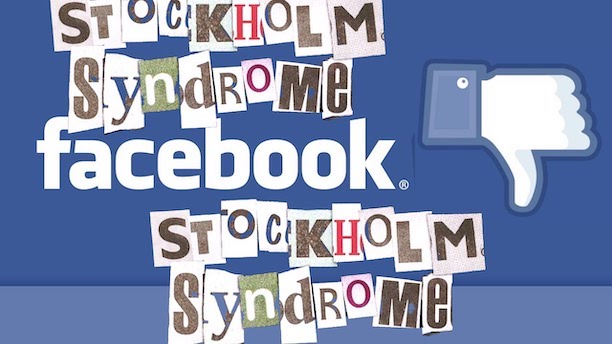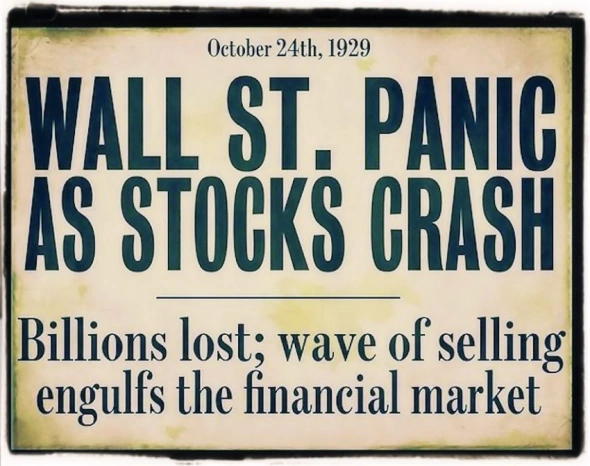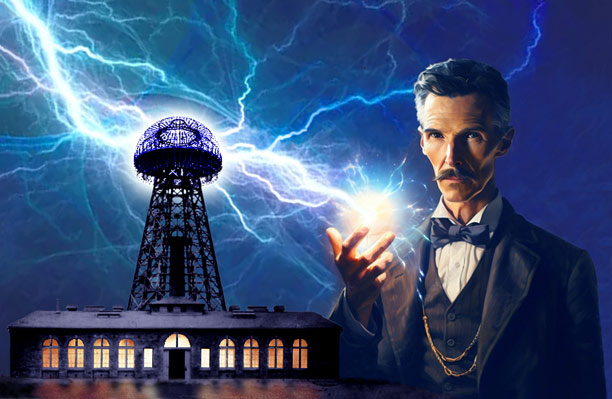Pages: << 1 ... 18 19 20 21 22 23 24 25 26 27 28 ... 1278 >>
How Trump's 2025 Presidency Mirrors the 1929 Economic Great Depression Crisis: An Analysis into History's Parallels
Robert David

William McKinley: The Mastermind of American Flourishing
The 25th President William McKinley had his term neglected because his successor, Theodore Roosevelt, is often regarded to be the more influential president. Regardless of this fact, the McKinley’s administration (1897-1901) laid down the groundwork for American dominance as a global superpower during his term.
His policies, especially with the Dingley Tariff of 1897, were proof of his vision. He raised tariffs, in attempt to protect American businesses. While many would argue that it only made things worse, it did provide some temporary relief to the economy after the Panic of 1893, which was arguably the most devastating recession in the country’s history before McKinley’s policies.
Nikola Tesla: The Man Who Dreamed of a Better World
by Tracy Turner
Nikola Tesla was not just an inventor. Tesla was a visionary whose inventions and ideas transcended the limits of space and time, shaping our modern world in ways that most people might not even be aware of.
Born on July 10, 1856, in the Croatian village of Smiljan, Tesla’s early life was marked by gifted intellectual energy, the type of genius that would define him for the rest of his life. Tesla's fame as an inventor, engineer, and physicist earned him recognition. Still, his accomplishments were set against the r of his resistance with government and corporate interests determined to thwart his vision reality.
Corporate powerhouses and the government were threatened by Tesla’s vision of free energy as open and accessible. Instead of celebrating him, people who could benefit from proprietary rigid frameworks sabotaged him. Full of speculation, myths, and legends, Tesla’s life is a testament to the reality of living in a world where innovation often meets oppression. However, one cannot deny the inspiration that his triumphs bring, showcasing how genius and innovation can surpass the deepest-seated forces of the status quo.
The Five Excuses for Genocide
By David Swanson, World BEYOND War
On Monday I interviewed a member of the Executive Committee of AIPAC. I asked him how he could defend and promote apartheid and genocide. He was not a legal witness; I could not order him not to change the subject. Still, he provided pretty clear (if very weak) excuses for genocide, which I think can be broken up into five types.
1. Others have done it.
The U.S. killed Native Americans, he pointed out. The U.S. starved Germans and Japanese. Israel labels half the people it kills as Hamas, and a ratio of 1 proper person killed to 1 improper person killed is well within the norms of recent wars and massacres.
The Shiny Object Syndrome: A Rebuttal to Modern Feminism and American Women's Spiritual Stagnation
Terry Lawrence

The women's movement, born in high hopes, has devolved in the past sixty years. What started as a struggle for parity-equal pay, equal opportunity, and equal respect-has disintegrated into an existence of a material, self-centered, and spiritually empty society. Modern feminism, which at one time promised freedom for women, has degenerated into a mere shadow of what it once was.
Today, it is more concerned with finding external validation, mass consumerism, and status than with the higher and greater ideals of spiritual and emotional growth. Not only did this revolution halt the personal development of numerous women, but it also created social disintegration, broken families, and a growing isolation for children, women, and men. The term "shiny object syndrome," the slang name for the popularity of surface distraction, is the most accurate description of the shortcomings of modern feminism. Girls just want to have funds.
The Estrogen Echo Chamber and the Toxic Masculinity Myth: A Rebuttal with a Wink and a Nod
Terry Lawrence
In the hysterical atmosphere of modern opinion, in which concepts are tossed about as freely as baubles and trinkets, few have been so overblown or so weakly defended as the so-called "theory" of "toxic masculinity." A phrase applied with all the zeal of a sideshow barker; this is the weapon of choice of a particular style of a feminist commentator who, under the false cover of scholarly examination, peddles a line whose condescension is rivaled only by its corrosive purpose.
To hear these voices, one would believe that masculinity is a toxic social illness pathology to be diagnosed, unraveled, and deconstructed. Let us not be fooled, though, by their rhetorical trickery. We have no fundamental critique of male action here but a heavy-handed exercise in misandry dressed up in the guise of social justice.
Why Is Europe Making Itself Irrelevant”
Paul Craig Roberts
Readers want to know why the UK PM and European leaders–really, non-readers, misleaders, bad leaders–want war with Russia over Ukraine. My answer is that they don’t.
What would they go to war with? According to the European “leaders,” they already have given all their weapons to Ukraine and have nothing with which o fight a war. The only way Europe can send any money to Ukraine is to get the EU central bank to print euros to send to Ukraine. Moreover, the NATO force structure depends on the United States. Without the US, Europe lacks a force structure that can support a war. Trump has ruled out war with Russia and read Zelensky the riot act. Unless Putin makes a fantastic mistake, I expect the conflict to end.
Perhaps what is going on with Europe’s is that EU governments, after sending so much money and weapons to Ukraine backed by claims that Ukraine was winning and would win, want to be able to say that Trump sold out Ukraine in order to avoid accountability to the deceived populations of Europe. They can blame Trump for denying Ukraine and NATO a victory.
A History of Eugenics and Eugenicists: A Timeline (1880-2025)
Fred Gransville
Hundreds of Thousands of Disappearances in Alaskan Triangle, Mexico, Chile, Argentina, Brazil and All 50 States of the United States Unexplained, Unsolved with No Authorities Even Looking.
The history of eugenics is politics, science, social ideals, and people. It is the story of ideas, under the cloak of progress, which set about rebuilding people by reforming births. In its various forms, eugenics tried to marry science and social engineering and then decide what kind of life was worth prolonging and what could be permitted to die.
This timeline traces eugenics and eugenicists' ascent, decline, and revival from the late 19th century through to the present day, highlighting events, major figures, and the development of human genetics and selective breeding thought.
Fear is a Blessing in Our Time of Western Complicity: Part 1
By Mark Aurelius
★This essay, or series of essays, contains controversial statements that could alarm people who are not tolerant of contentious questions or assertions, such as regarding religious beliefs, and how religious belief spills over into political conflict. However, stepping on religious sensitivities is not something a sensible person would readily do; and frankly, this article would not be shared, except for the fact that we, peoples of this planet, are in danger on multiple fronts. It is not any purpose herein to offend readers, but rather to hopefully create awareness, because without truer awareness there is little hope for our survival.★
In some critical ways, we live in unique times, while we retain our old human conditions and habits.
Modernity’s critical issues include population growth and it’s demand on resources, fast paced technological innovation, such as military warfare, speed and sophistication of computing power, industrialization and robotics, and artificial intelligence.
Facebook: A Twenty-First-Century Stockholm Syndrome with Deep-State Origins
Tracy Turner

At the turn of the twenty-first century, Facebook (Social Manipulation Tools) presented itself as an innocent social networking experiment. In less than two decades, it has become a coercive instrument of observation, conditioning of conduct, and psychological control. It draws ominous resemblances to Stockholm Syndrome, a psychological phenomenon in which hostages develop an emotional bond with their captors and defend them, even when faced with the opportunity to escape.
Beneath its shiny facade lies a multifaceted history irretrievably bound up in the U.S. military-industrial complex, spy agencies, and global surveillance indoctrination systems. Facebook's trajectory is more than a corporate tech monopoly out of control; instead, it is a cautionary case study of how a website, spawned from defense initiatives and spying endeavors, has ensnared billions in a nefarious network of control.
Warren Buffett’s $334 Billion Cash Reserve: A Stark Warning of a Looming Economic Crisis Due to Trump, Musk, and DOGE
Robert David

A striking parallel to today's economic instability as Warren Buffett hoards
$334 billion in cash reserves, signaling an impending financial disaster
linked to Trump, Musk, and DOGE.
The great Oracle of Omaha, Warren Buffett, has been a world economic bellwether for decades. His recent moves to bank a record cash stash of $334 billion, dump billions of shares, and remain firmly tight-lipped about his ultimate aspirations have befuddled financial writers. It is generally extrapolated today that Buffett is bracing for a record-breaking economic meltdown, potentially worse than the 2008 one.
The possibility that Buffett's preemptive action is a tactical response to future danger, namely from the 2025 Trump government, Elon Musk's growing market power, and the revolutionary wholesale contract cancellations within the Department of Government Efficiency (DOGE).






 ="loadimg" />
="loadimg" />

